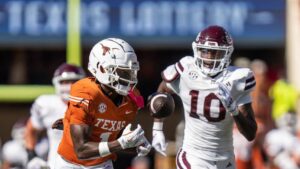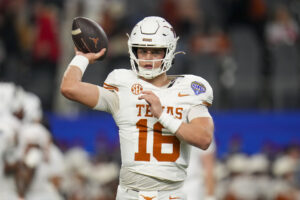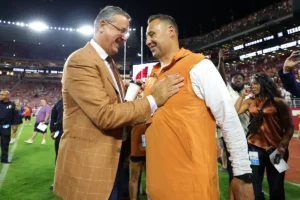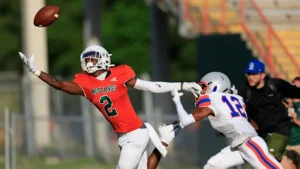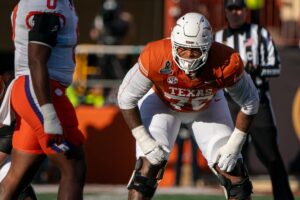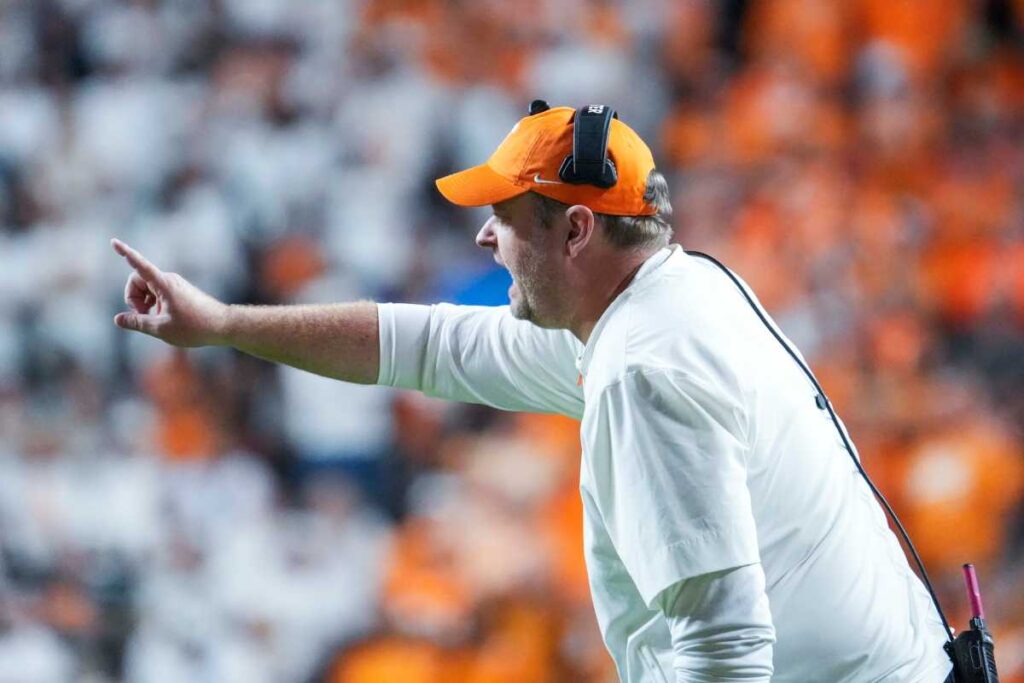
Rocky Top Under Scrutiny: Tennessee Football Faces Poaching Allegations in Pursuit of Coveted Quarterback
The reverberations of alleged illicit recruiting practices are once again echoing across the collegiate athletic landscape, this time centering on the storied football program of the University of Tennessee. Knoxville, a city synonymous with fervent Volunteer spirit and the iconic “Rocky Top” anthem, now finds its beloved football team under a cloud of suspicion. Reports have surfaced alleging that the Tennessee Volunteers have engaged in an attempt to improperly lure a highly-touted quarterback, projected to command a staggering $1.7 million in name, image, and likeness (NIL) earnings, from his current institution. These allegations, if substantiated, could trigger a significant investigation by the National Collegiate Athletic Association (NCAA), potentially leading to severe penalties that could hamstring the program’s future.
The modern era of college athletics is increasingly defined by the complexities and, at times, the murky waters of NIL and the transfer portal. While these mechanisms were intended to empower student-athletes, they have also inadvertently created an environment ripe for aggressive recruiting tactics that blur, and perhaps cross, the lines of NCAA regulations. The core of the issue lies in the prohibition against “tampering,” which refers to any attempt by a member of one institution’s athletic staff or its boosters to contact or encourage a student-athlete from another school to transfer without first entering the NCAA’s transfer portal.
In this specific instance, the allegations suggest that Tennessee, in its pursuit of bolstering its quarterback room, directly contacted a player currently enrolled and competing at another university. The allure was reportedly significant, potentially involving promises of lucrative NIL deals that would dwarf the player’s current earning potential. The $1.7 million figure attached to the quarterback underscores the high stakes involved in modern college football recruiting, where top-tier talent can command substantial financial compensation due to their marketability and on-field prowess.
The NCAA’s stance on tampering is unequivocal, though its enforcement can be challenging in the fluid landscape of NIL collectives and third-party communications. The intent of the rule is to maintain a level playing field and prevent institutions with deeper pockets or more aggressive boosters from simply poaching talent from other programs. However, the lines can become blurred when communication occurs through intermediaries or when student-athletes themselves express interest in exploring other options.
If the NCAA initiates a formal investigation into Tennessee’s alleged actions, the process could be lengthy and fraught with potential pitfalls for the Volunteers. The NCAA enforcement staff would meticulously gather information, potentially interviewing coaches, administrators, student-athletes, and representatives of NIL collectives. They would seek to determine the nature and extent of the contact, the inducements offered, and whether any NCAA rules were violated.
The consequences for a Level II violation, which is a presumptive classification for tampering, can be substantial. These penalties could include recruiting restrictions, such as a reduction in official visits, a ban on off-campus recruiting for a specified period, and limitations on communication with prospective student-athletes. The program could also face financial penalties, scholarship reductions, and even the suspension of coaches involved in the alleged violations. Moreover, the reputational damage to the university and its football program can be significant, potentially impacting future recruiting efforts and fan support.
It is important to note that these are currently allegations, and the University of Tennessee has not yet been formally charged with any wrongdoing by the NCAA. The burden of proof rests with the NCAA to demonstrate that impermissible contact occurred and that it constituted a violation of its recruiting rules. Tennessee will have the opportunity to respond to any allegations and present its own evidence.
However, the fact that these allegations have surfaced serves as a stark reminder of the pressures and temptations that exist in the high-stakes world of college football recruiting. The desire to secure top talent, particularly at the quarterback position, can lead some programs to push the boundaries of ethical and NCAA-compliant behavior. The promise of a transformative player who can elevate a program to national prominence can be a powerful motivator.
The case also highlights the intricate relationship between universities, their associated NIL collectives, and the recruitment of student-athletes. While collectives are ostensibly independent entities created to facilitate NIL opportunities, their close ties to athletic programs raise concerns about their potential role in impermissible recruiting inducements. The NCAA is actively grappling with how to regulate this evolving landscape and ensure that NIL remains a legitimate avenue for student-athlete compensation without becoming a tool for circumventing recruiting rules.
For the quarterback at the center of these allegations, the situation can also be complex. While the allure of a potentially more lucrative NIL deal and a change of scenery might be tempting, any involvement in an NCAA investigation could have implications for their eligibility and future. The NCAA has rules in place to prevent student-athletes from being complicit in recruiting violations.
The unfolding situation in Knoxville will be closely watched by the college football world. It serves as a barometer of the NCAA’s ability and willingness to enforce its recruiting rules in the age of NIL and the transfer portal. It also underscores the ethical considerations that institutions must navigate as they strive for competitive success while adhering to the principles of fair play and compliance.
Ultimately, the outcome of any potential NCAA investigation will have significant ramifications for the Tennessee football program. Sanctions could hinder their ability to compete at the highest level for years to come. The allegations also cast a shadow over the program’s recruiting practices and raise questions about the integrity of their pursuit of talent.
As the drama unfolds, one thing remains certain: the intersection of big money, elite talent, and NCAA regulations will continue to be a volatile and closely scrutinized aspect of college athletics. The Tennessee situation serves as the latest chapter in this ongoing saga, a cautionary tale for programs navigating the complexities of the modern recruiting landscape. The echoes of “Rocky Top” may soon be accompanied by the somber tones of NCAA scrutiny.
